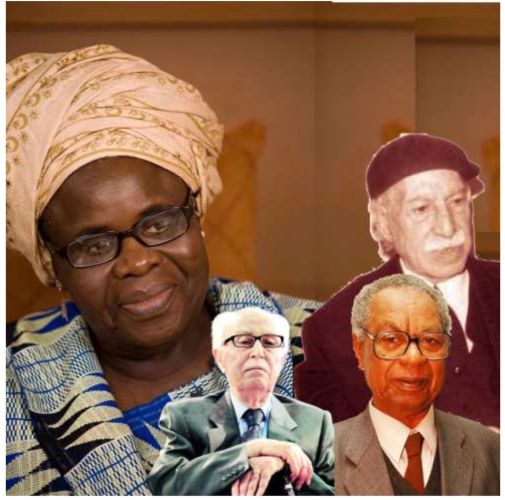
Historically and geographically, Ghana occupied a significant position in the history of colonialism and liberation movements in Africa
By Ashraf Aboul-Yazid | Egypt
The relationship between East and West, and the conflict between Eastern values and Western values, have been- and will remain – a subject of questioning, research, and a theme that stories, plays, novels, and travel literature deal with.
Perhaps, I could start with the year 1938, that is 85 years ago, when Egyptian writer Tawfiq al-Hakim (October 9, 1898 – July 26, 1987) published his play (a novel), “A Sparrow from the East”. Tawfiq al-Hakim embodied part of his autobiography, in addition to his expected handling of the clash between East and West in more than one aspect.
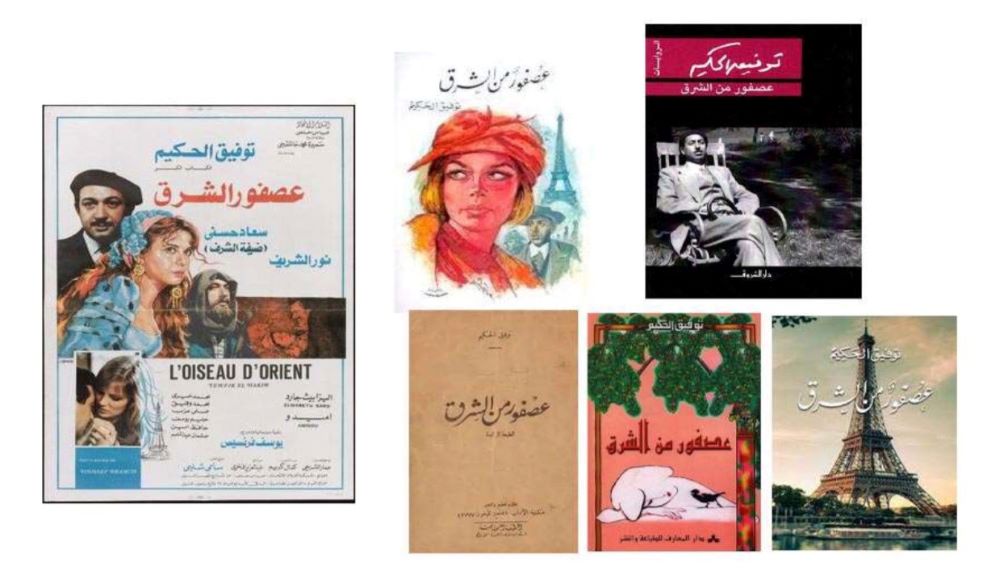
In that novel, the narrator tells the story of a young man from the East named Mohsen, who travels to France to study. Mohsen meets a ticket seller in a theater and falls in love with her without knowing anything about her, even her name. He decides to express his love to her, so he presents her with a parrot he called Mohsen, to accompany her everywhere she goes, but the girl does not feel the same way.
Briefly, Mohsen realizes that she is not the right person for him, so she and her love are lost. He ends his relationship with her to go out to a new zig and begins his journey with Ivan; his atheist Russian friend, who used to offer harsh criticism of the West and its civilization, so that Mohsen finds himself in front of two contradictory worlds; “material” and “spiritual”, or “West and East”.
For Tawfiq al-Hakim, the West was France or Paris in particular, which is self-evident, because the relationship with the other begins with the former colonizer. We see the same theme three decades later; in the novel by Sudanese writer Tayeb Salih (2 July 1929 – 18 February 2009); (Season of Migration to the North), which was published in Hewar magazine in 1966, before being published as an individual book in Beirut, in the same year, but Tayeb Salih chooses another colonizer: Britain.
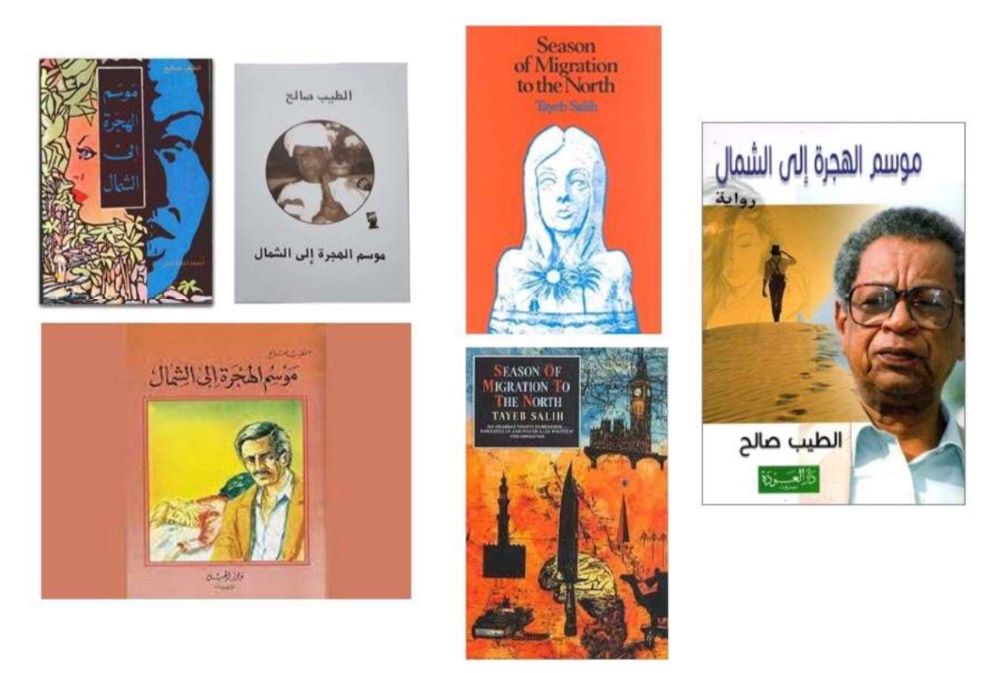
The hero, in (Season of Migration to the North), is a student named Mustafa, gets a job as a lecturer at a British university and adopts the values of British society. There he meets his wife, Jane Morris, a British woman who refuses to accept her husband’s dictates. Years later, Mustafa returns to his country, where he suddenly meets the narrator of the story, who also lived in Britain.
This was an introduction to emphasize the richness of the topic and its insistence on writers to be dealt with in more than one format, and there is always the South versus the North, and the East against the West, even in contemporary novels such as (An Oriental Lady in Paris), 2006, by its Moroccan author Abd al-Karim Ghallab (December 31, 1919 – August 14, 2017).
After eight decades, the idea did not die because there is debate about it, so what difference does our legendary narrator, Ama Ata Aidoo (23 March 1942 – 31 May 2023), whom we celebrate today, present?
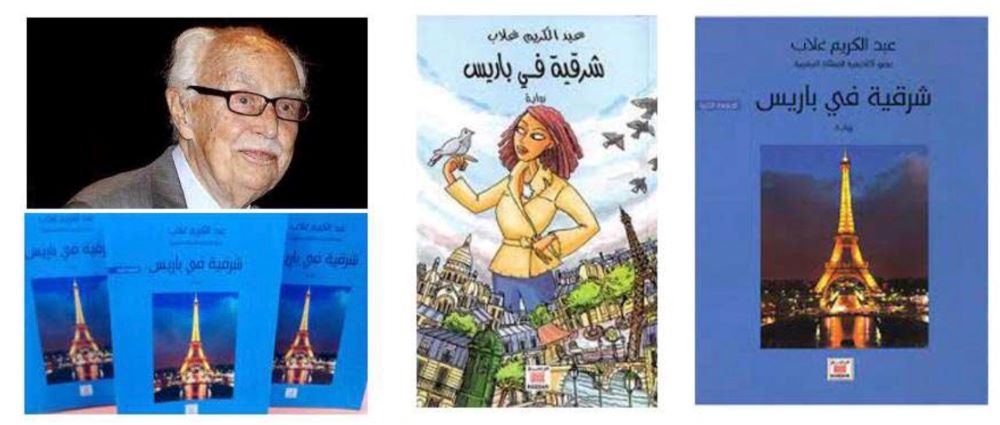
While the mentioned above authors were all men, who travelled to the west, and narrated their experiences, we have a different situation that is the west is coming to the east; the north is living in south in Ama Ata Aidoo’s play; (The Dilemma of a Ghost), published in 1965, which is considered one of Ghana’s first and most influential postcolonial literary works that followed Ghana’s independence from the British colonization in 1957.
The play came out to light in a critical period in which the postcolonial Ghanaian identity was being formed on all levels: psychological, social, political, etc. Some critics consider that its exceptional importance in the history of Ghana in particular and Africa at large. Though Ghana, as a historical fact, was not the first African nation to get its independence, both Egypt of Tawfiq al-Hakim and Sudan of Tayeb Salih preceded it in 1956, Ghana’s liberation from the British imperialism was a landmark in the history of the whole continent.
Historically and geographically, Ghana occupied a significant position in the history of colonialism and liberation movements in Africa. Its location on the western coast of the continent enabled it once to act a prominent role in the slave trade between Africa and the New World for over three centuries through its famous historical ports as Cape Coast and Elmina that are referred to in Aidoo’s drama in question, as Dr. Mahmoud Gaber Abdelfadeel mentioned in his study of Aidoo’s play.
As such, the emergence of the new nation-state of Ghana was at the center of attention of all those concerned with the historical conflict between colonialism and anti-colonialism, the West and the East, in addition to tradition and modernity. In other words, Ghana has become a major field of postcolonial studies.

I see Ghanaian writer Ama Ata Aidoo an outspoken woman who resists and subverts traditional literary boundaries. Aidoo’s long, varied and prolific literary career publishing poems, plays, short stories, essays and novels – garnered much attention from critics and, after teaching for several years at various institutions in Africa and the USA, earned the respect and recognition of the African-American writer, Alice Walker, who enthusiastically affirms at the front cover of Aidoo’s Ghanaian edition of her novel “The Changes”: “Aidoo has reaffirmed my belief in the power of the written word to reach, teach, empower, and encourage.”
In an Interview with Ama Ata Aidoo entitled “I Learnt my First Feminist Lessons in Africa” by María Frías, we read how Aidoo challenges, dismantles, and subverts the traditional “dumbness of the black women trope.”
She was born into the Akan community – a Ghanaian group that overtly favors women – according to Aidoo – to the point where the mother-of-four sons still considers herself “barren” because she cannot bear any daughters, and where women are supposed to bear children. Power but not strength Aidoo’s (for some) progressive portrayal of African women is just a reflection of what she saw: “I’ve got this amazing view of what’s going on in that society and I defy – I don’t know that being a woman is so important in an Akan society.”
Accordingly, Aidoo advances the complex lives of women who act in contradictory ways haunted by African traditions, but caught up in the disintegration of postcolonial Africa. She is just one of the many female voices that urgently need to be heard after being silenced for so long.
The irony here lies in the fact that Aidoo also gives a voice to Muslim women like Fusena, also in (The Changes), who, though university-educated abroad and conspicuously intelligent, conform to the submissive social and religious role assigned to them by their culture.
Aidoo’s recurring themes are, “marriage, motherhood, emotional and economic dependence, women’s education, their political and economic marginalization, and resistance to oppression”. With an unconscious Western feminist agenda always in mind, Aidoo insists that she did not learn her notions of feminism outside of Africa, and that her vocal women simply come from her Akan – Aidoo side
So, when she got the chance to be in Europe and the USA for a real encounter she continued to express her ideas born in her work, (The Dilemma of a Ghost), before leaving home, Mother Africa.
I could also say that Ama Ata Aidoo has Africanized some of Shakespearean scenes perfectly; “The Bird of the Wayside”, in her starting prelude of the play is folkloric African narrator who knows of the past, present and future. In the same way Shakespeare used three witches in Macbeth’s starting scene to tell a prophecy that Macbeth will one day become king. The difference Ama’s Bird of the Wayside is not telling us what is going to happen; rather it invited us to see events together.
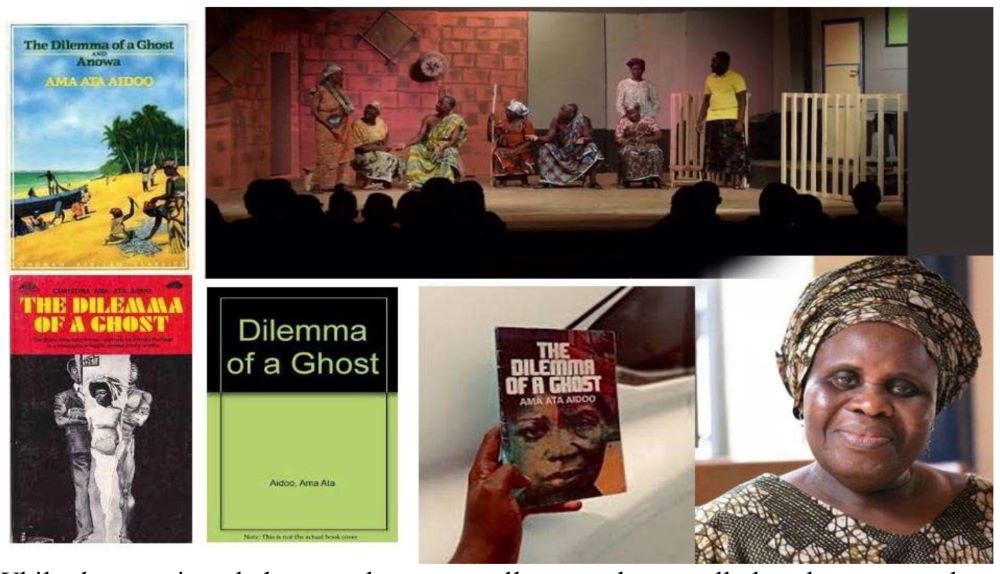
As a conclusion, while men wrote about characters from the masculine point of views, Ama Ata Aidoo was keen to exhibit the feminine opinion. It is important to mention that Ama Ata Aidoo succeeded to embody the women, not only in Africa or Ghana, but in her own Akan society, with their traditions and entity. For her, she didn’t have to travel first to examine her ideas, as men writers did; she wrote her play while she was in college.
I finally believe that there are common questions I may ask, observing (A Sparrow from the East), (Season of Migration to the North), (An Oriental Lady in Paris) and (The Dilemma of a Ghost):
What do writers of the East want from West; are they seeking for revenge, are they haunting a compensation, are they guaranteeing a help, or what?
Are they satisfied with the marriage and love relationship with the previous colonizing states?
Are they getting their rights back by studying abroad, getting academic certificates ad even teach in western universities?
Are they feeling blessed to get recognition from colonizing powers?
Will the transformation of some western individuals to be pro-Africans, following the black continent traditions will be enough?
Finally, will we be able to show our points of views in the tongues of others?
Ten years ago, Ama Ata Aidoo was asked by María Frías (Revista Estudios Ingleses 16 (2003) CONTENTS 38):
“In your play The Dilema of a Ghost, Eulalie, the African American woman who marries African Ato in the United States and travels to meet his family in Africa, is portrayed in the negative: she rejects food (snails); rites (washing her stomach); tribalism (family meetings), etc. Are you sending the message that the embrace between African American women and African women is not possible?”
Ama Ata Aidoo answered:
“At that time I was not consciously sending any messages. I wrote this play when I was twenty years old. I returned from the Conference in Lagos to live on Campus and to write this play. In retrospect, all I can say is that if I were a critic dealing with this play I would say that both parties are sending and getting messages. It was not only Eulalie, as an African American girl, who was rejecting African society. Africans had already rejected her, her smoking, her drinking. What I am trying to say is that if you want to bring two forces together without any preparation there is meant to be a clash. You bring an African American girl without telling her honestly what you see about your own African society, and then you don’t tell your people what to expect from an African American person. You just throw them together. What could they do but hate one another’s guts? I mean, you could do the experiment, and the same could happen with two Ghanaians coming from two different ethnic groups.”
The truth is that questions raised by writers for several decades are still alive. Answers were given in the literary works mentioned above, but we still need more answers in literature and criticism, for more understanding and building a more peaceful homogeneous world.
Text of my presentation during the session of Toyin Falola Interviews on Ama ATA Aiddo, July 2, 2023.
____________
Ashraf Aboul Yazid is Egypt’s world known writer, poet, novelist, travelogue writer, Editor-in-Chief at Silk Road Literature Series. He is author of some three dozen books.